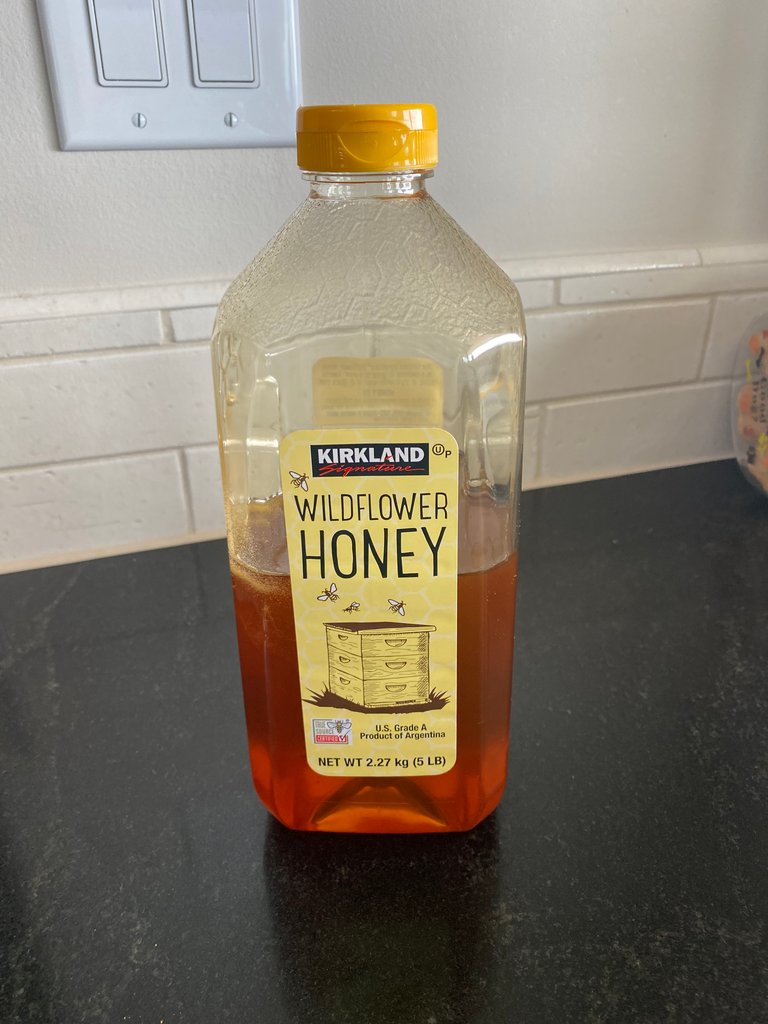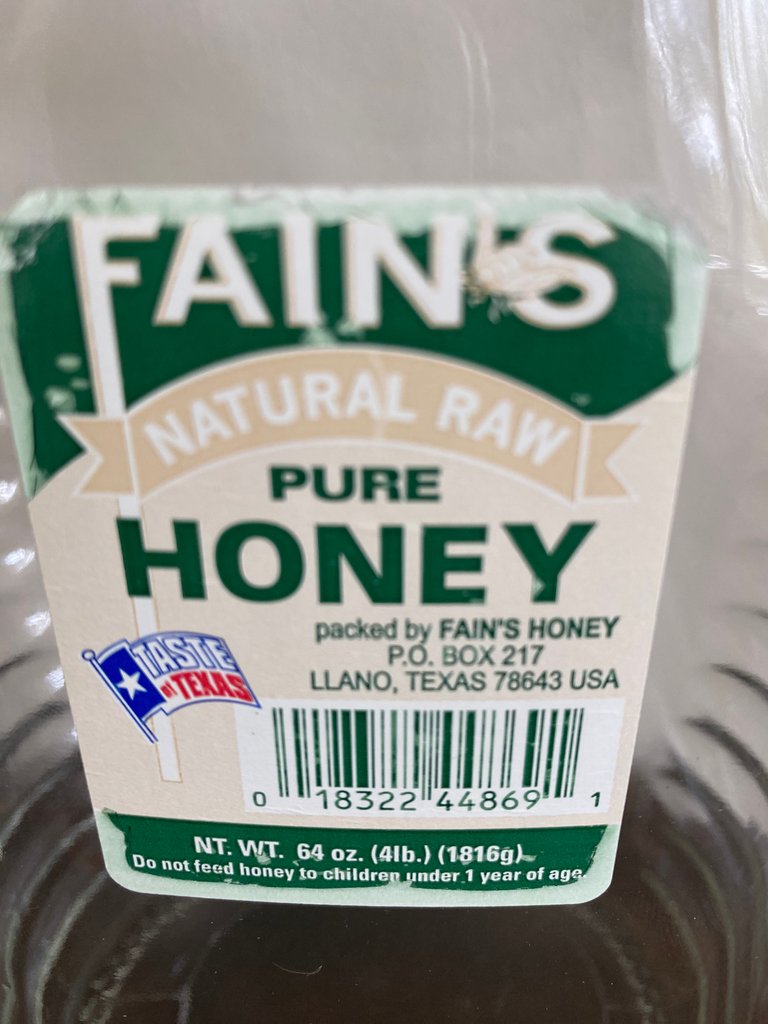I use Honey as my sweetener of choice. It goes well with everything. I put it on bread, biscuits, in my coffee or tea and about anything else that I want sweetened. As you can see, I have big bottle of honey that is almost half empty.

We had purchased this bottle at Costco because it was about half the price of the honey we get at the local market. I always like to save money when possible.
This morning when i was putting the bottle back in it’s place on the counter, I noticed it did not state anywhere on the bottle that it was natural honey like the local honey bottle stated. “Natural Raw Pure Honey”

This led me to research what the difference was between natural honey and processed honey. Here is what I discovered about each one.
Natural Honey
Natural honey is a sweet substance produced by honeybees from the nectar of flowers. It has been cherished by humans for centuries, not only for its delightful flavor but also for its numerous health benefits. Unlike processed honey, natural honey is raw, unfiltered, and unpasteurized, preserving all the beneficial enzymes, antioxidants, and nutrients. It contains a variety of vitamins and minerals, including vitamin C, calcium, and iron. Additionally, natural honey is known for its antibacterial and anti-inflammatory properties, making it a popular remedy for soothing sore throats and aiding in wound healing.
The process of making natural honey begins with bees collecting nectar from flowers and storing it in their honey stomachs. They then return to the hive, where they pass the nectar to other worker bees through a process called trophallaxis. These bees break down the complex sugars in the nectar into simpler sugars using enzymes in their saliva. Once the honey is partially digested, the bees deposit it into honeycomb cells and fan it with their wings to evaporate the water content, thickening the honey. When the honey reaches the desired consistency, the bees seal the cells with beeswax, preserving it for future use. This intricate process results in a pure, golden elixir that is both delicious and nutritious, making natural honey a treasured gift from nature.
Processed Honey
Processed honey, unlike natural honey, undergoes several steps that often strip it of many of its beneficial properties. The processing typically involves heating the honey to high temperatures to eliminate yeast and prolong shelf life. This heating can destroy enzymes and antioxidants that contribute to honey's health benefits. Additionally, processed honey is often filtered to remove impurities like pollen, which can also reduce its nutritional value. Some commercially processed honey may even contain additives such as sugar or corn syrup to enhance its sweetness, which can dilute the purity of the final product.
The end result of this processing is a product that is more uniform in appearance and texture, making it more appealing to consumers who prefer a clear and smooth honey. However, this comes at the cost of losing the unique flavors and potential health benefits that raw, natural honey offers. Processed honey may still be a sweetener option for those looking for a stable and longer-lasting product, but it lacks the depth of nutrients and natural goodness found in its unprocessed counterpart. For those seeking the full spectrum of honey's benefits, opting for raw, natural honey is often the better choice.
My Observation
Wow, based on this I am trading saving money for a lot of nutrients that it would be best to consume. Yes, the honey looks and taste very similar. The local honey sometimes is sweeter and not as smooth but now I understand why.
I would much prefer to has honey that does not appear as smooth and consistent then to have most of the nutritional value stripped from it when processed.
I think i would rather pay a higher price for the raw natural honey.
What do you think?
 Follow
Follow